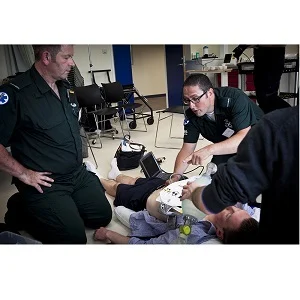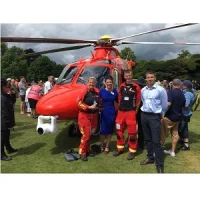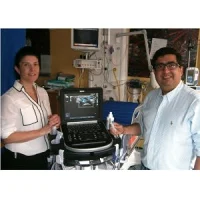Point-of-care ultrasound plays an important role in the management of cardiac arrest, as Dr Matthew Reed, an Emergency Medicine consultant at the Royal Infirmary of Edinburgh, explained: “We know that the prognosis for a patient with a beating heart is far better than for someone in cardiac standstill. Using ultrasound, we can see whether or not a patient remains in cardiac standstill following a period of intensive resuscitation, and may also be able to identify a previously undetected pathology – such as cardiac tamponade or ventricular fibrillation – that was not visible on the ECG. Ultrasound can also help to guide the most appropriate course of action, for example, unblocking a coronary artery in the cath lab, aggressive treatment of alternative causes of cardiac arrest, or possibly ECMO.”
“We set up an emergency ultrasound training programme almost 10 years ago, purchasing a FUJIFILM SonoSite point-of-care ultrasound system to complement those used in radiology and critical care in our hospital. Its robustness is ideal for the emergency department (ED), and radiologists and critical care physicians needing to scan patients in the ED are familiar with the system, which is another advantage. We now have around 60 clinicians fully trained in level 1 ultrasound, and the number of scans performed in a typical month has risen from 10 to in the region of 80 to 100. There is also considerable interest in using pre-hospital ultrasound assessment to complement care in the ED, which will help to streamline the management of cardiac arrest patients even further.”
Source & Image Credit: Sonosite










